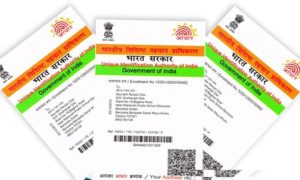From January 1, 2023, the Insurance Regulator and Development Authority of India (IRDAI) has made KYC norms mandatory for buying all types of insurance — life, general, and health insurance.
Earlier, it was not binding on customers to share their KYC documents while purchasing an insurance policy. But with new rules in place, insurers will first have to do Know Your Customer (KYC) exercise before selling a policy.
Read More: Paytm rolls out 14% discount on first domestic flight ticket booking
As far as existing policyholders are concerned, the insurance sector regulator has given insurers a specified time-frame to comply with the KYC norms. The insurance companies have been given two years for low-risk policyholders and one year for other customers, including high-risk ones, to get their KYC done. The insurers will inform policy holders via SMS or email about the KYC documents needed and other details.
Insurance experts believe that the new rule will help in faster claim settlements as insurance companies will have a more detailed profile of their customers through KYC. It, they said, will also help prevent fraudulent claims and ensure that payments go to the legal heirs of policyholders. Proper KYC mechanism will also help in maintaining a centralised database of policy records, which will serve all stakeholders in the insurance value chain.
Read More: RBI slaps Rs 6 lakh penalty on Sharad Sahakari Bank in Pune
KYC documents include photo IDs and proof of address (PoA), like passport, driving licence, and utility bill. At present, policyholders are required to submit a PAN card if the aggregate insurance premium is Rs 50,000 or more in a financial year. For existing policyholders with insurance of not more than an aggregate premium of Rs 50,000 in a financial year, PAN/Form 60 must be obtained by a date to be determined by the government, as per IRDAI rules.





































